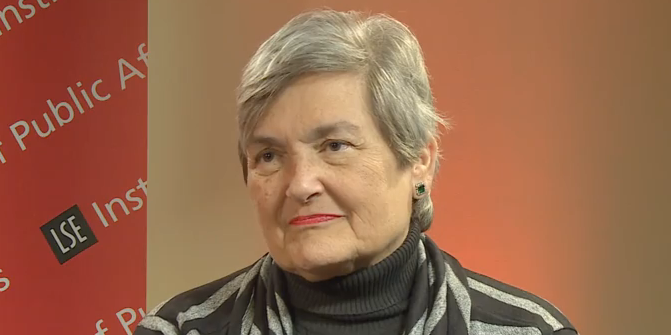 Professor of Political Science and Women’s and Gender Studies at Rutgers University
Professor of Political Science and Women’s and Gender Studies at Rutgers University
On taking risks: “I never worried much. I just followed my passion. I followed what I wanted to do. Perhaps if I had come from a more academically oriented family I would have thought differently and been more cautious. Maybe I was a risk taker because I didn’t know any better? So I simply said, “I’m going to do what I want to do” and found people who would support me.”
On setting up a graduate field in women in politics at Rutgers University: “Some men were really resistant. They said, ‘No one will come to do this programme.’ I didn’t know that anyone would come; I just knew I would have come. The men said, ‘Well maybe you’ll get some minors; no one will major in this.’ All of a sudden these brilliant students started showing up. We started getting the best students in the department. They came because of what we did.”
On institutional change for women in academia: “I don’t see much institutional change. I think feminists have created spaces for themselves, but the academy doesn’t support it. The leadership positions are still primarily male, and the women who are there are not necessarily feminist scholars. I’m sure it’s changing in some places, but I haven’t seen a lot of institutional change. I see feminists creating spaces for themselves, but not the support coming from the top.”
On working in academia: I’ve never been very good with authority, so I would have had a lot of problems in a lot of workplaces that are more structured. Or I would have been unhappy and there would have been repercussions. I like the freedom to define my own agenda. Although you don’t have 100 percent freedom, you do have a lot of freedom in academia.”
Lessons: “The first thing I tell my graduate students is: it’s not about intelligence. The smartest don’t always survive. It’s about tenacity and it’s about passion. I always tell them: do what you’re passionate about, don’t get involved doing someone else’s work, do what you care about. I try to teach them to be diplomatic, and to understand that they need to be political and diplomatic at all times. We train graduate students to be incredible critics and I try to teach them that it’s a small world, and that you may be discussing someone’s research now but in the future they could be discussing yours. Therefore you should treat them as you would want to be treated.”
“It’s a tough journey. You have got to work really hard and you have to be willing to sacrifice other things in your life. There is no question about that. And probably women have to sacrifice a lot more than men do, generally speaking. Women don’t have the networks that men have, although they are starting to develop.”
“You have to pick your battles; you can’t fight every battle or you’ll be exhausted.”





